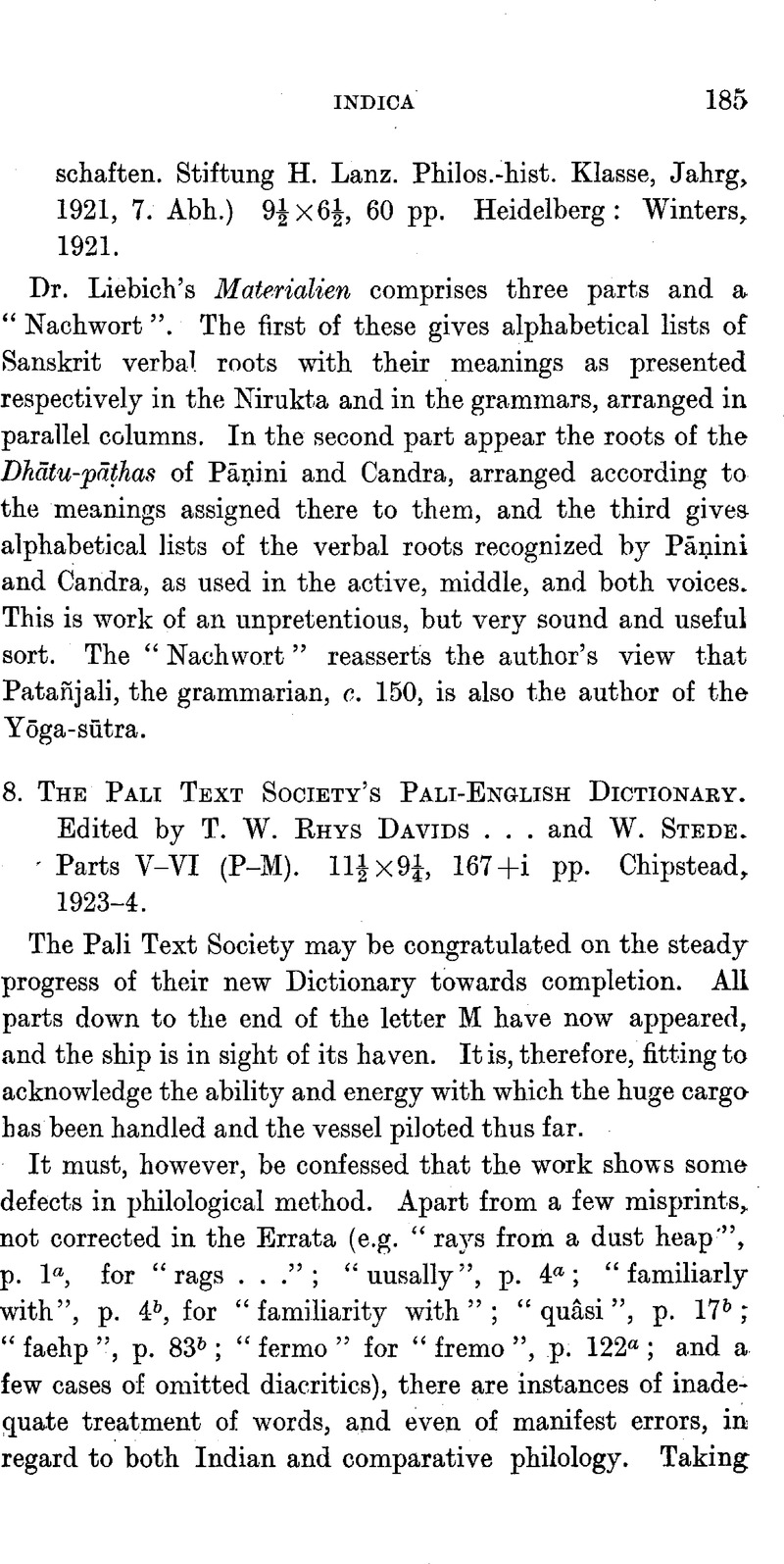No CrossRef data available.
Article contents
Indica (et alia) - 8. The Pali Text Society's Pali-English Dictionary. Edited by T. W. Rhys Davids … and W. Stede. Parts V–VI (P–M). 11½ × 9¼, 167 +i pp. Chipstead, 1923–1924.
Published online by Cambridge University Press: 15 March 2011
Abstract

- Type
- Notices of Books
- Information
- Copyright
- Copyright © The Royal Asiatic Society 1925
References
page 186 note 1 The word in its Sanskrit and Pali forms is probably to be connected with the gloss in the Dhātu-pāṭha paṭ gatāu, and and primarily meant “ vagrant ”, then “ tramp ”, “ robber ”.
page 186 note 2 In this connexion we may venture to point out that s.v. appēti the editors have confused Skt. apyēti and arpayati.
page 187 note 1 Since writing the above notice we have received part vii of the Dictionary, which shows the same features as its predecessors. There are misprints, e.g. vaṇṇāta, quâsi, and some curious English, as “ restituted ”, p. 46, s.v. lōma. There are serious imperfections in Indian philology: thus s.v. yēbhuyya, p. 15, we read “ ye = yad in Māgadhī form ; thus yad bhūya = yad bhiyya ”, whereas yē is properly Māg. for yas, and bhiyya is a vox nihili ; s.v. raṇa, p. 20, much of the difficulty can be cleared up by comparing Tamil raṇam, iraṇam, from Skt. vraṇa ; rūpa, p. 32, is not “ connected etymologieally with varpa ” (read varpas), if philology is a science ; lakāra, meaning a sail, our editors derive from alaṅkara, perhaps rightly, and they compare “ Hindī and Marāthī langara, Tamil ilankaran ”, but omit to mention that the Hindi, Marathi, Tamil and Persian words mean anchor; s.v. vacca, p. 50, the Buddh. Skt. vaccaḥ is quoted, but no mention is made of the classical Skt. varcas. The comparative philology too leaves something to be desired ; e.g., s.v. rakkhati, p. 18, aggala is said to be from a base areq, and vasati, p. 62, is wrongly equated with Av. varәhaiti.


